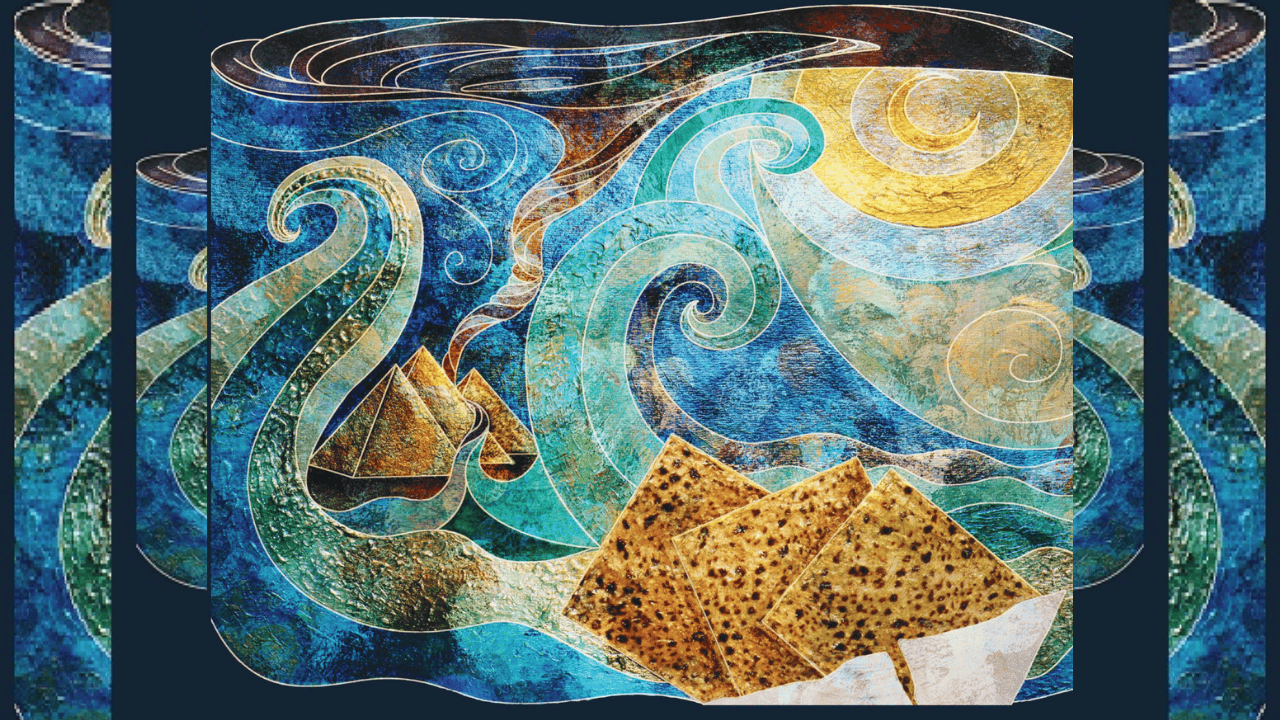“It came to pass at the end of two full years, that Pharaoh was dreaming, and behold, he was standing by the Nile” (Genesis 41:1). The full two years referred to here are the two years that passed from the time that Joseph interpreted the dreams of the butler and the baker. Despite the fact that Joseph requested from the butler that he mention to Pharaoh how he was incarcerated falsely, the butler forgot about him. As a result of Pharaoh seeking an interpretation for his dreams, the butler remembered how Joseph had correctly interpreted his dream and he finally mentioned him to Pharaoh.
Rabbi Shlomo Carlebach in the name of the Ishbitzer Rebbe reveals a deep insight into this incident and the very nature of reality itself. According to the storyline the cause-and-effect dynamic at work here is that due to Pharaoh’s dreams Joseph was brought out of jail in order to interpret them. Not only does he interpret them but the advice he gives to Pharaoh results in his becoming the viceroy of Egypt and in effect second in command. Yet, the Ishbitzer Rebbe contends just the opposite: Pharaoh had his dreams because the time had come for Joseph to come out of jail.
According to tradition Joseph came out of jail on Rosh Hashanah. Until then he had maintained an attitude that God knew best and when He would determine that it was time for him to be freed from jail, that is when it would occur. Yet on that Rosh Hashanah, according to the Ishbitzer Rebbe, Joseph had reached the end of his rope and cried out to God for salvation. At the very moment of his anguished prayer Pharaoh dreamt his dreams (See Even Shlomo; Parshat Miketz; edited by Rabbi Shlomo Katz).
Although it is obvious that we cannot always control what happens to us, the above insight teaches us that in many cases the events in our life are the product of our own thoughts, desires and willpower. Many of the events in our life are not just “life happening to us” but are manifestations of what we are projecting onto the screen of reality.
There are certainly circumstances when adopting Joseph’s original attitude of trusting that God knows best and waiting for various signs or signals as to what we perceive as God’s Divine Providence in our lives is a correct attitude to assume. At these times we simply pray to God to reveal to us which direction to turn. With a heartfelt request we let God know that we are ready and prepared to fulfill God’s will. We just ask that He reveals what exactly that is. Yet, other times, what is truly required of us is to go beyond a neutral stance and to express clearly to God the deepest desires of our heart. Although Joseph was waiting for God to take him out of jail, in a sense what God wanted from Joseph was for him to storm the heavens with his deep desire to be free. From the time he was sold as a slave Joseph had been waiting for God to reveal the reason for his predicament. Only when he felt he had no strength to continue did the force and immediacy of his prayer create, in a sense, his own path to freedom. We see a similar dynamic when immediately after the Torah records how the people of Israel cried out because of the harshness of the slavery in Egypt, God appear to Moses at the burning bush with the directive to lead the people to freedom.
The Talmud describes binah, “understanding,” as understanding something within something else. In our particular case what appears to be a chance occurrence that brought Joseph out of jail, according to the idea of the Ishbitzer Rebbe, it was quite the opposite – the prayer of Joseph created Pharaoh’s dreams and his need to have them interpreted.
It is very interesting to note that modern physic’s view of reality is very similar. What appears to be solid, material matter, is in fact energy; that which appears to be static and stationary is hiding a world of frenetic molecular motion within. Further, science now confirms the role of the observer as an indispensable part of the reality that is being observed.
In an amazing statement the Talmud proposes that a tzaddik decrees and God fulfills. Although we would think that God decrees and the tzaddik fulfills, the Sages propose just the opposite! Obviously, the Sages realized that this is certainly not always the case, nonetheless they wanted to reveal that much of the reality that a person experiences in their own life is a result of their own actions. Yet what we are speaking about here extends beyond a measure for measure type of dynamic, rather that the force of our will has the power to create reality, both for the positive and the negative. Just as we need to be aware that our prayers and desires in life are not always answered or fulfilled, we need also to know the power that is in our hands to determine how our lives will unfold.







